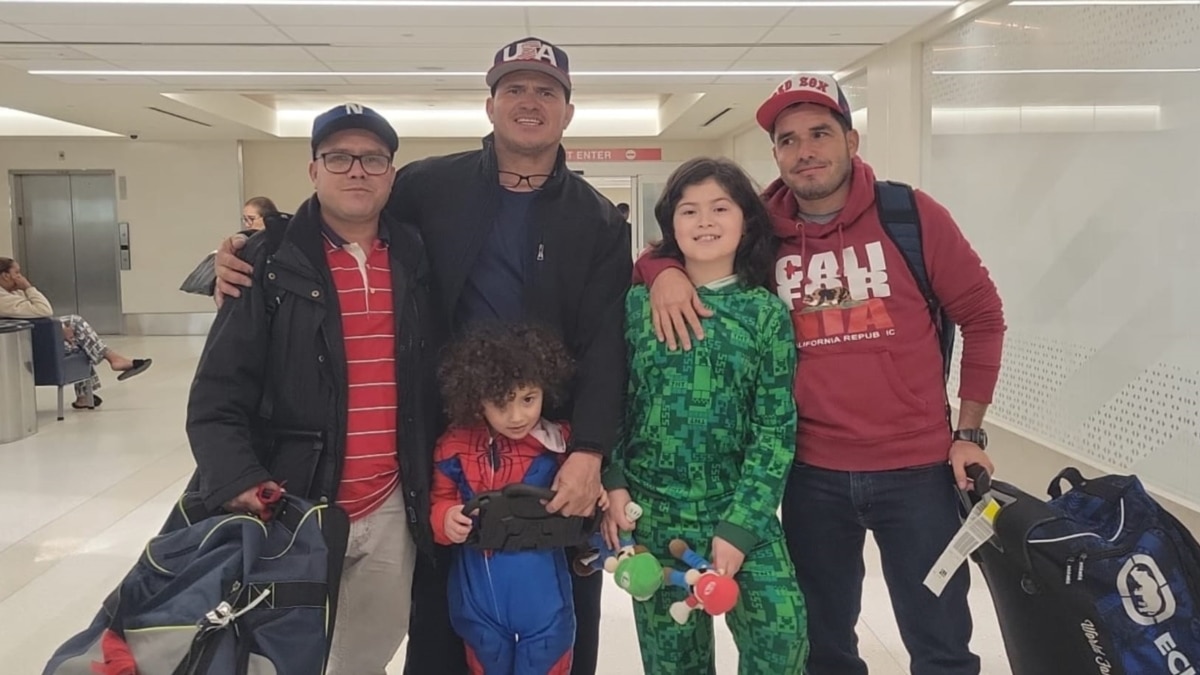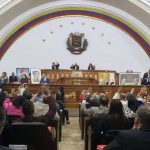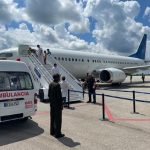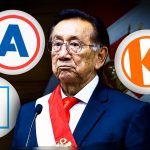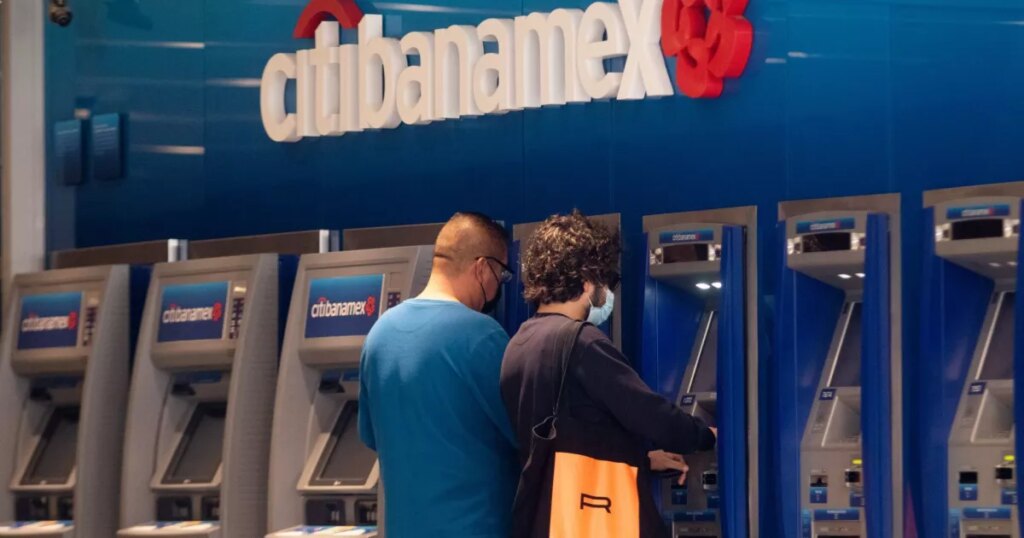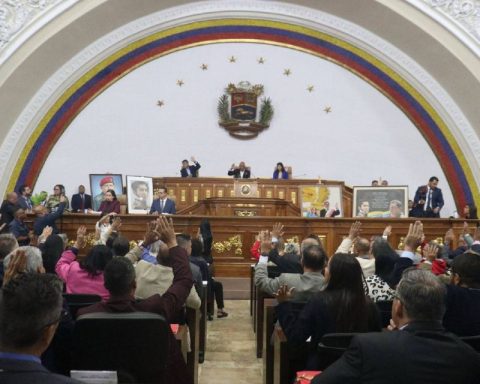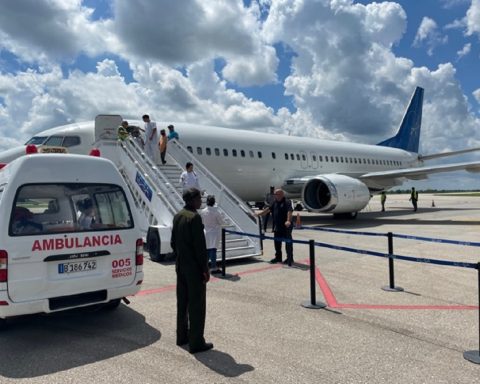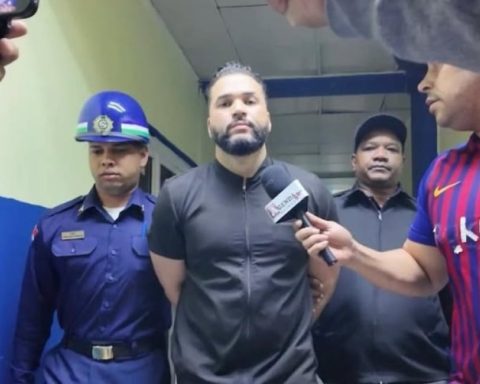Jorge Luis López Delgado, who has lived in the United States for more than 15 years, received this Saturday his two brothers who were approved with the “humanitarian parole”, the new Washington program that seeks to establish an “orderly” migration for Nicaraguans , Cubans, Haitians and Venezuelans.
However, the dates that López had defined for his brothers Renato and Henry to travel from Nicaragua, where they are from, to the US under the humanitarian parole were different. The first would travel on February 11 and the second a month later because that is what the parole indicates.
However, it was brought forward to Saturday for both brothers, anticipating a possible suspension of the humanitarian parole, says López, after 20 states controlled by Republican governors filed a lawsuit before a federal court in Texas to request suspension of the program.
“What I did was buy the ticket as quickly as possible, fearing that the parole would be suspended or that some legal situation would arise here. The two parties are in contention in this country,” the Nicaraguan told the Voice of America. “Initially I wanted to bring them one by one,” he added.
Both Renato and Henry López arrived at the Fort Lauderdale airport in Florida on Saturday to meet their brother who had not traveled to Nicaragua for at least four years due to the sociopolitical crisis.
They fear parole suspension
The non-governmental and political organizations in Nicaragua ask for “flexibility for the entry of those fleeing” from “Ortega’s repression” and on the other hand “that they apply the sanctions with the full weight of the law” against the Sandinista president, as as indicated to the VOA the activist Ana Quiroz, who belongs to the organization Blue and White National Unity (UNAB).
According to Quiroz, closing the possibility of migrating to the United States for the Nicaraguan population fleeing the crisis in the country “would be something extremely negative.”
“Never in history, since there have been migration records, have there been more Nicaraguan migrants, more exiles and more people fleeing than there have been in the last four years and months. This is due to the conditions of the country and is due, especially, to the dictatorial measures of the Ortega y Murillo regime”, adds Quiroz.
Meanwhile, other Nicaraguans have asked for support to obtain a sponsor given the lack of possibilities of having close relatives like José*, a 20-year-old who belongs to a student opposition organization.
José indicates that he needs to leave the country since 2019, since in that year the imprisonments of young people who participated in the 2018 protests multiplied and he saw hope in the humanitarian parole, although he fears that it will be cancelled.
“Leaving Nicaragua has been more than impossible for me, since I do not have the necessary help to ensure my safety. I have been looking for more than a year to contact organizations to explain my case and they can give me the help that I need so much, before it is too late”, says this young man.
Jorge López, who has just met with his brothers, considers the immigration measure safe and expeditious, since he had applied to one of his brothers three years ago, but he says that this type of application took longer.
“Sometimes it lasts between seven, sometimes 10, depending on the country they last up to 14 years. What the parole allowed me was to come expeditiously in terms of time”.
In the same way, he adds that it is a safe alternative, since on other occasions his brothers told him that they wanted to arrive irregularly “when there was a boom” in immigration, although he opposed it due to “the danger of kidnapping and extortion.”
Jorge sees the parole as “a prize, as something that repays” the sacrifice he has made for all this time where he has worked as a welder of metal structures on bridges.
“I see it as the United States government is giving an opportunity to people who work, make an effort and comply with what the law says to be able to bring their relatives. Unfortunately, sometimes some people see it as discriminatory, but no, I see it as fair”, he concludes.
Connect with the Voice of America! Subscribe to our channel Youtube and activate notifications, or follow us on social networks: Facebook, Twitter and instagram.
